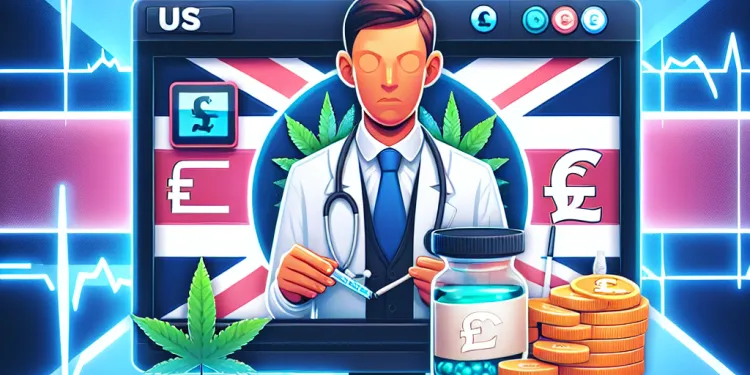
Find Help
More Items From Ergsy search
-

What precautions are necessary when using ketamine?
Relevance: 100%
-
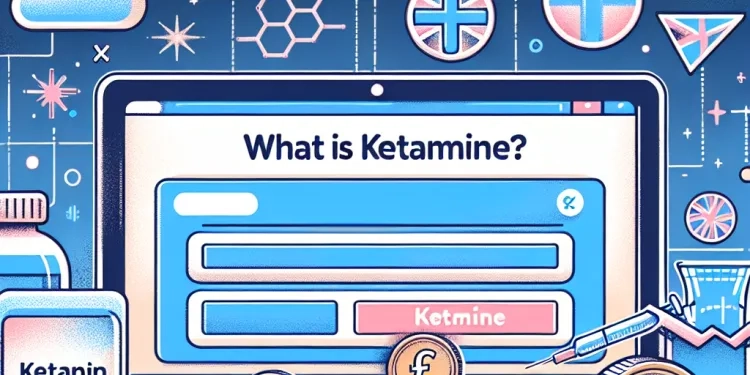
What is Ketamine?
Relevance: 72%
-

Is ketamine addictive?
Relevance: 69%
-

How is ketamine administered?
Relevance: 68%
-

Is ketamine legal?
Relevance: 68%
-
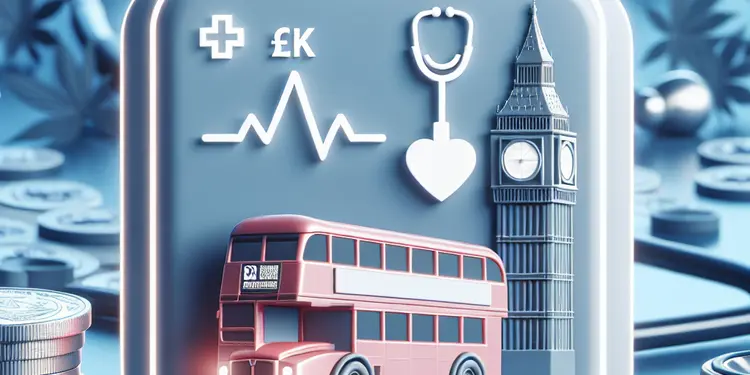
Are there any legal uses for ketamine?
Relevance: 67%
-

Is ketamine a controlled substance?
Relevance: 66%
-

What is the classification of ketamine?
Relevance: 66%
-

Is ketamine safe for everyone?
Relevance: 66%
-
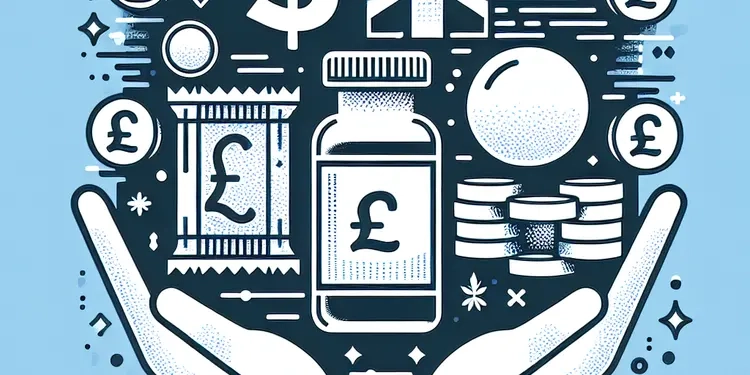
Is Ketamine a Class B drug?
Relevance: 65%
-

Is the production of ketamine regulated?
Relevance: 65%
-

Is it legal to import ketamine?
Relevance: 65%
-

How is ketamine used in veterinary medicine?
Relevance: 64%
-

What are the medical uses of ketamine?
Relevance: 63%
-

What is ketamine infusion therapy?
Relevance: 63%
-
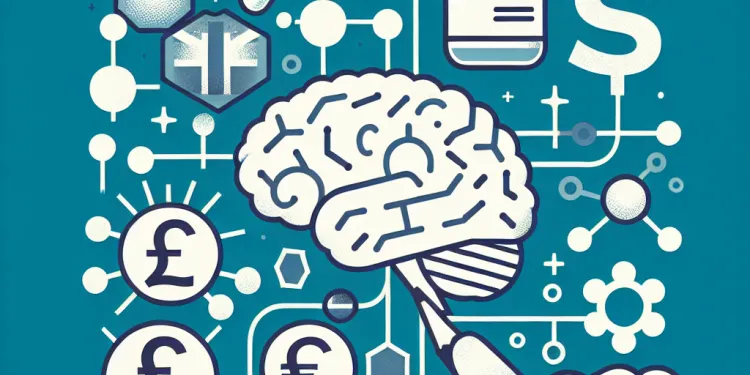
How does ketamine work?
Relevance: 63%
-

What is the potential for addiction with ketamine?
Relevance: 63%
-

What is the penalty for supplying ketamine in the UK?
Relevance: 62%
-

What is the penalty for possessing ketamine in the UK?
Relevance: 61%
-
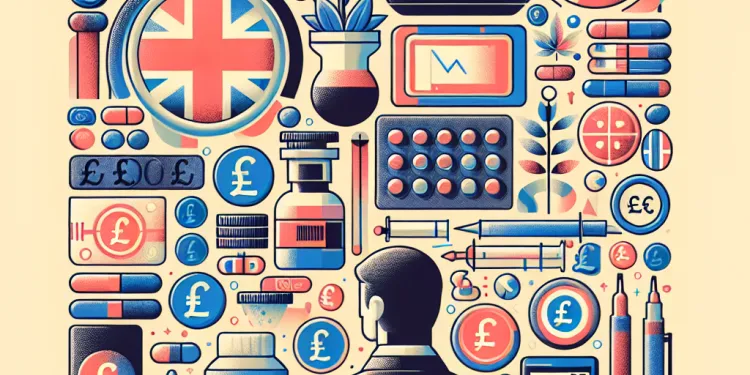
What are the common side effects of ketamine?
Relevance: 61%
-
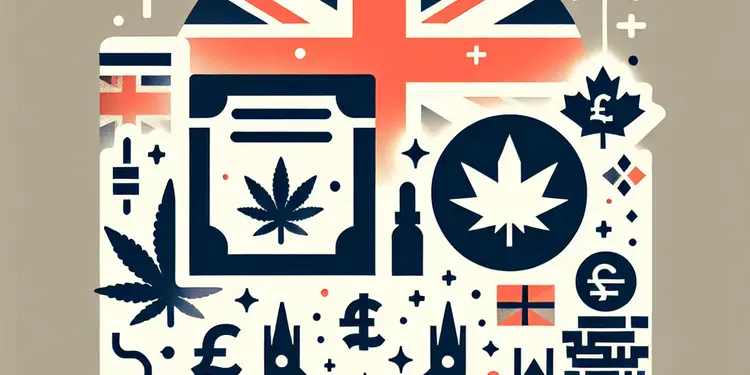
What is the legal status of ketamine in Canada?
Relevance: 61%
-

Does ketamine have long-term effects?
Relevance: 61%
-

What conditions is ketamine used to treat?
Relevance: 61%
-

How long do the effects of ketamine last?
Relevance: 60%
-

What is the difference between ketamine and esketamine?
Relevance: 60%
-

Are there any treatment programs for ketamine addiction?
Relevance: 60%
-

Can ketamine be used for recreational purposes legally?
Relevance: 60%
-

Is ketamine considered a controlled substance in the United States?
Relevance: 59%
-

Does the classification of ketamine differ between countries?
Relevance: 59%
-
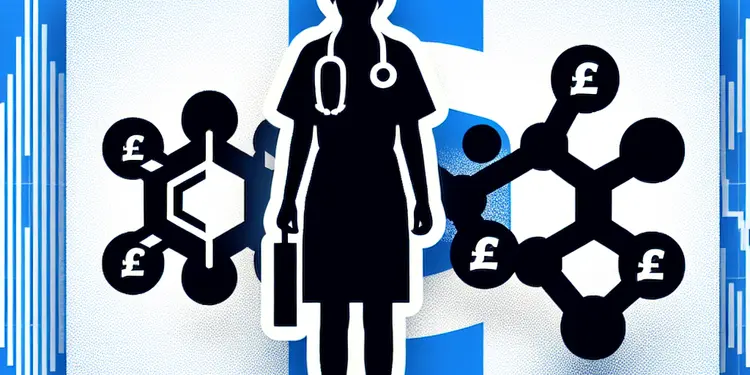
Can ketamine be prescribed for mental health conditions?
Relevance: 59%
-

What are the known side effects of ketamine usage?
Relevance: 59%
-

What does it mean for ketamine to be a Class B drug in the UK?
Relevance: 59%
-

How is ketamine different from traditional antidepressants?
Relevance: 59%
-

Has ketamine's classification changed over time?
Relevance: 59%
-
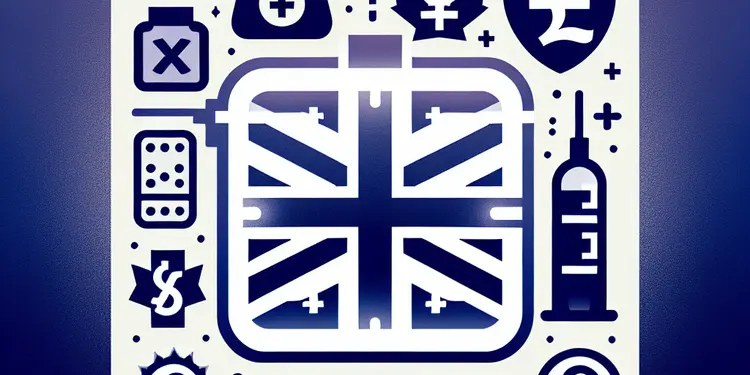
How can I legally obtain ketamine for medical use?
Relevance: 58%
-

Why was ketamine reclassified from Class C to Class B in the UK?
Relevance: 57%
-

What safety precautions should be taken when using mobility equipment?
Relevance: 42%
-

Are there any special precautions for pets during a heatwave?
Relevance: 41%
-

What should I expect during a ketamine infusion?
Relevance: 40%
-

What precautions should pregnant women in the UK take regarding Zika virus?
Relevance: 40%
Understanding Ketamine Use
Ketamine is a medication primarily used for anesthesia and pain relief, but it has also found use in treating depression and other mental health conditions. While it can be beneficial, using ketamine requires careful precautions to avoid adverse effects and ensure safety, especially in the UK where specific guidelines are in place.
Medical Supervision
Ketamine should always be used under strict medical supervision. In the UK, it is typically administered in a clinical setting by a healthcare professional. This ensures that the correct dosage is used and that any adverse reactions can be promptly addressed. Self-medication or unsupervised use can be dangerous and is not recommended.
Dosage Management
Correct dosage is crucial when using ketamine. The appropriate dose can vary based on the individual's medical history, the condition being treated, and the delivery method. Overdosing can lead to severe complications, including respiratory issues and psychological distress. Only a qualified medical professional should determine the appropriate dosage.
Avoiding Substance Interactions
Ketamine can interact with other substances, leading to enhanced or diminished effects. Patients should inform their healthcare provider about any other medications they are taking, including over-the-counter drugs and supplements. Combining ketamine with alcohol or other depressants can be dangerous as it may enhance sedative effects, increasing the risk of an adverse reaction.
Monitoring Side Effects
Common side effects of ketamine use may include nausea, dizziness, and hallucinations. Patients should be closely monitored for these and any other unexpected reactions. Immediate medical attention is required if severe side effects occur, such as intense hallucinations, confusion, or difficulty breathing.
Legal Considerations
In the UK, ketamine is classified as a Class B controlled substance under the Misuse of Drugs Act 1971, meaning it is illegal to possess, supply, or produce without a licence. Its use is strictly regulated, and it is only legally available for medical use with a prescription. Misusing ketamine can result in legal consequences and significant health risks.
Awareness of Psychological Effects
Ketamine can have psychological effects due to its dissociative properties. Patients with a history of mental health issues should be assessed carefully before treatment, as ketamine may exacerbate certain conditions. Continuous evaluation by mental health professionals is important to mitigate any potential psychological risks.
Recovery and Support
After ketamine treatment, it is advised to have a support system in place and avoid activities requiring full mental alertness, such as driving, until fully recovered. Follow-up appointments are crucial to assess the treatment's efficacy and make any necessary adjustments to the care plan. Engaging in counseling or therapy may help address any lingering psychological effects.
Understanding Ketamine Use
Ketamine is a medicine used to make people sleep during surgery and to help with pain. It can also help people with depression and other mental health problems. While it can be helpful, it is important to use ketamine carefully so that it is safe. In the UK, there are special rules to follow when using ketamine.
Medical Supervision
Ketamine should only be used with a doctor watching over you. In the UK, doctors usually give ketamine to people in a clinic. This makes sure that the right amount is used and any bad reactions can be quickly taken care of. It is not safe to use ketamine on your own.
Dosage Management
It is very important to use the right amount of ketamine. The right amount depends on the person's health history, what they are being treated for, and how the medicine is given. Too much can be very dangerous and make it hard to breathe or think clearly. Only a doctor should decide how much ketamine a person should have.
Avoiding Substance Interactions
Ketamine can mix with other medicines you are taking, which can change how it works. Tell your doctor about all the medicines you take, even ones you buy at the store or vitamins. Mixing ketamine with alcohol or other drugs that make you sleepy can be very dangerous.
Monitoring Side Effects
When using ketamine, some people might feel sick, dizzy, or see things that are not there. It is important to watch for these and other unexpected reactions. If someone has very bad side effects like strong hallucinations, feeling very confused, or trouble breathing, they need to see a doctor right away.
Legal Considerations
In the UK, ketamine is a controlled drug. This means it is against the law to have it, give it to others, or make it without a special permit. It can be used legally only when a doctor prescribes it. Using ketamine the wrong way can lead to legal trouble and health problems.
Awareness of Psychological Effects
Ketamine can affect how people think or feel because it can change their perception. People with mental health issues need careful checking before they use ketamine, as it might make their condition worse. It's important to have mental health professionals involved to keep the person safe.
Recovery and Support
After using ketamine, it is good to have someone to help and not do things like driving until feeling fully back to normal. Doctors often want to see how the treatment worked and if any changes are needed. Talking to a counselor or therapist can help deal with any emotional effects of ketamine.
Frequently Asked Questions
What is ketamine used for?
Ketamine is primarily used as an anesthetic for humans and animals. It's also used in the treatment of depression and other mental health conditions.
What precautions should be taken before using ketamine?
Before using ketamine, it's important to disclose your medical history, especially if you have a history of heart problems, substance abuse, or mental health disorders.
Can ketamine be used recreationally?
Ketamine should not be used recreationally due to the risk of addiction, adverse effects, and legal consequences.
How is ketamine administered?
Ketamine can be administered intravenously, intramuscularly, orally, or nasally, depending on the medical context.
What are the common side effects of ketamine?
Common side effects include dizziness, nausea, increased salivation, hallucinations, and confusion.
What should I do if I experience severe side effects from ketamine?
Seek immediate medical attention if you experience severe side effects such as difficulty breathing, chest pain, or extreme confusion.
Is ketamine safe for everyone?
Ketamine is not safe for everyone. It should be used cautiously in individuals with heart disease, high blood pressure, or a history of substance use disorder.
Can ketamine interact with other medications?
Yes, ketamine can interact with other medications, especially those that affect the central nervous system. Always inform your healthcare provider about all medications you are taking.
Is ketamine suitable for treating depression?
Ketamine has shown promise in treating depression, especially in cases where other treatments have failed, but it should be administered by a healthcare professional.
How should ketamine be stored?
Ketamine should be stored at room temperature, away from light and moisture. Keep it out of reach of children and pets.
Can ketamine cause dependency?
Yes, ketamine has the potential to cause psychological dependency, particularly if used recreationally or without medical supervision.
What is a 'ketamine trip'?
A 'ketamine trip' refers to the hallucinogenic and dissociative effects some people experience when using ketamine. This can include altered perceptions of reality and time.
Is it safe to drive after using ketamine?
No, it is not safe to drive or operate heavy machinery after using ketamine due to its effects on coordination and perception.
Can I drink alcohol while on ketamine?
No, mixing ketamine with alcohol can increase the risk of severe side effects and should be avoided.
How quickly does ketamine take effect?
Ketamine can take effect within minutes when administered intravenously, and within 5-15 minutes when administered intramuscularly.
What are the long-term effects of ketamine use?
Long-term use of ketamine can lead to bladder issues, cognitive impairments, and potential mental health problems.
Are there any contraindications for ketamine use?
Yes, contraindications include uncontrolled high blood pressure, certain mental health conditions, and allergies to ketamine.
Can pregnant women use ketamine?
Ketamine should be used during pregnancy only if absolutely necessary and prescribed by a doctor, as it may pose risks to the fetus.
What are the signs of a ketamine overdose?
Signs of a ketamine overdose include severe confusion, unconsciousness, slow or difficult breathing, and loss of motor control.
Can ketamine cause hallucinations?
Yes, one of the effects of ketamine can be hallucinations, which is why it should be used with caution and under medical supervision.
What do people use ketamine for?
Ketamine is a type of medicine. Doctors use it to help people feel calm or to stop pain during surgeries.
It is also used sometimes to help people who feel very sad or worried.
If you need more help understanding, you could:
- Ask a doctor to explain.
- Use picture stories to learn more.
- Watch videos about ketamine for better understanding.
Ketamine is a medicine. Doctors use it so people and animals don't feel pain during operations. It also helps people who feel very sad or have other mental health problems.
What should you do before using ketamine?
Before using ketamine, tell your doctor about your health. It's important to say if you had heart problems, drug or alcohol issues, or mental health troubles.
Can people use ketamine for fun?
Do not use ketamine to have fun. It can be very addictive. It can also make you feel very sick. You might get in trouble with the law too.
How do you take ketamine?
Ketamine can be given in different ways:
- Shot: A doctor gives it with a needle.
- Drink: It can be mixed with water.
- Nasal spray: You spray it into your nose.
- Pills: You swallow them like medicine.
If you have trouble reading, you can:
- Ask someone to read it to you.
- Use a speech-to-text app to hear the words.
- Break big words into smaller parts to sound them out.
Ketamine can be given in different ways. It can be given through a needle in your vein, a needle in your muscle, by drinking it, or through your nose. The way it is given depends on what the doctor thinks is best.
What can happen after taking ketamine?
Ketamine can make you feel different. Here are some things that might happen:
- You might feel dizzy or weak.
- You could have a headache.
- Your heart might beat faster.
- You may see or hear things that aren't there.
If you take ketamine, make sure to tell an adult how you feel. They can help you if something is wrong.
Sometimes, this medicine can make you feel dizzy, sick, or make you drool more. It might also make you see things that aren't there or feel confused.
What if ketamine makes me feel really bad?
If ketamine makes you feel very sick, tell an adult you trust. You should call your doctor or go to the hospital quickly. They can help you feel better. It's important to get help fast.
You can also:
- Have someone stay with you if you feel dizzy or scared.
- Take slow, deep breaths to stay calm.
- Keep a list of how you feel and when it started to tell the doctor.
Try using a phone to call someone for help. Ask a friend or family member to help you, too.
If you feel very bad with things like having trouble breathing, pain in your chest, or feeling very confused, get help from a doctor right away.
Is ketamine safe for everyone?
Ketamine is a drug. It can help some people feel better. But it is not safe for everyone.
Some people can have bad reactions to ketamine. It is important to talk to a doctor before using it.
Always ask an adult or a doctor if you have questions about ketamine. They can help you understand more.
You can also use picture cards or apps to help explain about ketamine to you.
Ketamine is not safe for everyone. People with heart problems, high blood pressure, or past drug or alcohol problems should be very careful.
Can ketamine mix with other medicines?
Sometimes, medicines can change how each other work when taken together. This is called an interaction.
If you are worried, talk to your doctor or pharmacist. They can tell you if it is safe. Use a list to keep track of all the medicines you take so you can show them.
Ask for help if you have questions. It is important to be safe with medicines.
Yes, ketamine can mix with other medicines. This is extra important for medicines that help control your brain and nerves. Always tell your doctor or nurse about all the medicines you are taking.
Can ketamine help with feeling sad?
Ketamine can help with feeling very sad when other medicines do not work. A doctor or nurse should give it to you.
How to Keep Ketamine Safe
Keep ketamine in a cool, dry place. This means not too hot, not too cold, and away from water. A cupboard is a good spot.
Make sure it is stored where children or pets cannot reach it. You can use a locked box or high shelf to keep it safe.
If you have trouble remembering these steps, you can use sticky notes as reminders.
Keep ketamine in a safe place at room temperature. Make sure it's not in the sun or where it's wet. Keep it away from children and pets.
Can ketamine make you need it all the time?
Ketamine is a drug. Some people might want to use it again and again.
If you use ketamine a lot, it can be hard to stop. It can make you feel like you really need it.
Tips that can help:
- Talk to a trusted adult if you feel you need help.
- Find activities that make you happy without drugs, like playing sports or drawing.
- Use apps that help you stay calm or relax, like meditation apps.
Yes, ketamine can make you want to keep using it, especially if you take it for fun or without a doctor's help.
What is a 'ketamine trip'?
A 'ketamine trip' is how a person feels after taking a drug called ketamine. It can make them see or feel things that are not real, like being in a dream.
If you find reading hard, try using pictures or videos to help you understand. You can also ask someone you trust to explain it to you.
A 'ketamine trip' is when someone takes ketamine and sees things that are not real. They might also feel like time is moving differently.
Can I drive after using ketamine?
It is not safe to drive if you have taken ketamine. Ketamine can make you feel dizzy, sleepy, or confused. This can be dangerous when driving. It is important to wait until you feel normal again before driving. You can ask someone you trust to help if you need to travel somewhere.
If you need help with reading, you can try using a tool to read the text out loud. This can make it easier to understand. Always ask for help if you are unsure about what to do.
It is not safe to drive or use big machines after taking ketamine. Ketamine can make it hard to move properly and see things clearly.
Can I drink alcohol when I take ketamine?
Ketamine is a strong medicine. It is not safe to mix it with alcohol. Drinking alcohol with ketamine can be dangerous.
If you take ketamine, it is best not to drink alcohol at all.
You can use simple reading tools to help understand more. Ask a doctor or nurse if you have questions.
Do not mix ketamine with alcohol. It can be very dangerous and make you feel very sick.
How fast does ketamine work?
Ketamine can work in just a few minutes if it's given through a drip (IV). It can work in 5-15 minutes if it's given as a shot in the muscle.
What happens if you use ketamine for a long time?
Ketamine can change how you feel and think. Using it a lot can cause problems.
Here is what could happen:
- Memory Problems: It might be hard to remember things.
- Feeling Sad: You could feel sad or not want to do things.
- Hurt Bladder: It could make it hard to pee and hurt your bladder.
- Thinking Changes: It might change how you think clearly.
- Feeling Worried: You might feel scared or worried often.
Talk to someone you trust if you have questions. You can also use picture cards or apps that explain things simply to help understand better.
Using ketamine for a long time can hurt your bladder, might make it hard to think clearly, and could cause problems with your mental health.
When should you not use ketamine?
Ketamine might not be safe for everyone. Here are some times when you should not use it:
- If you have heart problems.
- If you have mental health issues, like serious depression or schizophrenia.
- If you take certain medicines that don’t work well with ketamine.
To help understand more, you can:
- Talk to a doctor or nurse.
- Use a medicine app to learn more about ketamine.
Yes, there are some reasons why people should not use ketamine. These include:
- Having high blood pressure that is not managed by a doctor.
- Having certain mental health problems.
- Being allergic to ketamine.
If you have trouble understanding this, you can ask a doctor or a helpful adult. They can explain it to you. Please make sure to talk to a healthcare professional if you have questions.
Can women who are having a baby use ketamine?
It is important for women who are having a baby to be careful with medicines. Ketamine is a strong medicine used by doctors. If you are having a baby, talk to your doctor before using ketamine.
Here are some tips to help:
- Ask a doctor or nurse if ketamine is safe for you.
- Get help from someone you trust if you find it hard to read information.
- Use pictures or videos to understand more about the medicine.
Only use ketamine when you are pregnant if your doctor says you really need it. It might not be safe for the baby.
What happens if someone takes too much ketamine?
Here is what to watch for if someone takes too much ketamine:
- They might feel very confused.
- They could have trouble moving or walking.
- They might see and hear things that are not real.
- They could feel sick in their tummy or throw up.
- It might be hard for them to breathe.
- They may feel really sleepy or fall asleep suddenly.
If you see these signs, it's important to get help from a grown-up or call for a doctor.
To learn more, you can ask someone you trust or use a talking computer to help you read and understand.
If someone takes too much ketamine, they might show these signs:
- They are very confused.
- They are not awake.
- It is hard for them to breathe.
- They cannot move their body well.
For help, you can use picture cards to show these signs easily.
Can ketamine make you see things that are not real?
Yes, ketamine can make you see or hear things that are not real. This is called a hallucination. It's important to use ketamine carefully and with a doctor's help.
Useful Links
This website offers general information and is not a substitute for professional advice.
Always seek guidance from qualified professionals.
If you have any medical concerns or need urgent help, contact a healthcare professional or emergency services immediately.
Some of this content was generated with AI assistance. We’ve done our best to keep it accurate, helpful, and human-friendly.
- Ergsy carfully checks the information in the videos we provide here.
- Videos shown by Youtube after a video has completed, have NOT been reviewed by ERGSY.
- To view, click the arrow in centre of video.
- Most of the videos you find here will have subtitles and/or closed captions available.
- You may need to turn these on, and choose your preferred language.
- Go to the video you'd like to watch.
- If closed captions (CC) are available, settings will be visible on the bottom right of the video player.
- To turn on Captions, click settings .
- To turn off Captions, click settings again.
More Items From Ergsy search
-

What precautions are necessary when using ketamine?
Relevance: 100%
-

What is Ketamine?
Relevance: 72%
-

Is ketamine addictive?
Relevance: 69%
-

How is ketamine administered?
Relevance: 68%
-

Is ketamine legal?
Relevance: 68%
-

Are there any legal uses for ketamine?
Relevance: 67%
-

Is ketamine a controlled substance?
Relevance: 66%
-

What is the classification of ketamine?
Relevance: 66%
-

Is ketamine safe for everyone?
Relevance: 66%
-

Is Ketamine a Class B drug?
Relevance: 65%
-

Is the production of ketamine regulated?
Relevance: 65%
-

Is it legal to import ketamine?
Relevance: 65%
-

How is ketamine used in veterinary medicine?
Relevance: 64%
-

What are the medical uses of ketamine?
Relevance: 63%
-

What is ketamine infusion therapy?
Relevance: 63%
-

How does ketamine work?
Relevance: 63%
-

What is the potential for addiction with ketamine?
Relevance: 63%
-

What is the penalty for supplying ketamine in the UK?
Relevance: 62%
-

What is the penalty for possessing ketamine in the UK?
Relevance: 61%
-

What are the common side effects of ketamine?
Relevance: 61%
-

What is the legal status of ketamine in Canada?
Relevance: 61%
-

Does ketamine have long-term effects?
Relevance: 61%
-

What conditions is ketamine used to treat?
Relevance: 61%
-

How long do the effects of ketamine last?
Relevance: 60%
-

What is the difference between ketamine and esketamine?
Relevance: 60%
-

Are there any treatment programs for ketamine addiction?
Relevance: 60%
-

Can ketamine be used for recreational purposes legally?
Relevance: 60%
-

Is ketamine considered a controlled substance in the United States?
Relevance: 59%
-

Does the classification of ketamine differ between countries?
Relevance: 59%
-

Can ketamine be prescribed for mental health conditions?
Relevance: 59%
-

What are the known side effects of ketamine usage?
Relevance: 59%
-

What does it mean for ketamine to be a Class B drug in the UK?
Relevance: 59%
-

How is ketamine different from traditional antidepressants?
Relevance: 59%
-

Has ketamine's classification changed over time?
Relevance: 59%
-

How can I legally obtain ketamine for medical use?
Relevance: 58%
-

Why was ketamine reclassified from Class C to Class B in the UK?
Relevance: 57%
-

What safety precautions should be taken when using mobility equipment?
Relevance: 42%
-

Are there any special precautions for pets during a heatwave?
Relevance: 41%
-

What should I expect during a ketamine infusion?
Relevance: 40%
-

What precautions should pregnant women in the UK take regarding Zika virus?
Relevance: 40%


